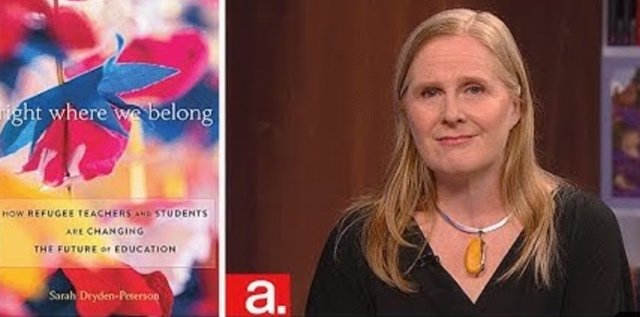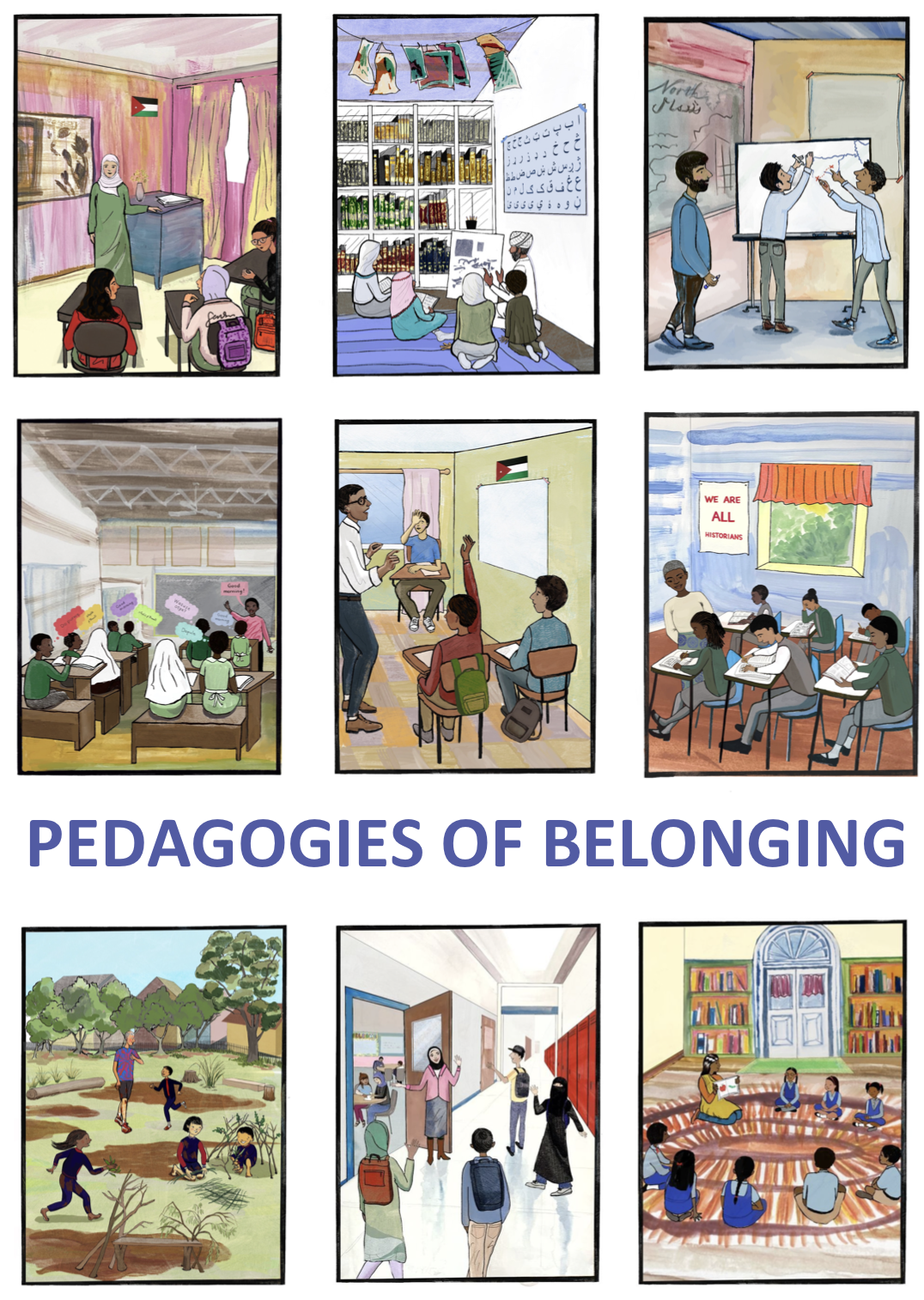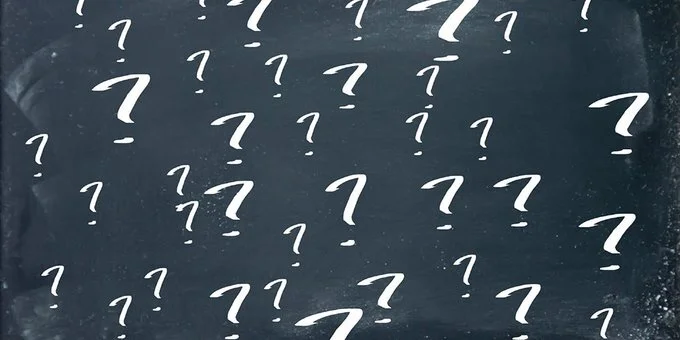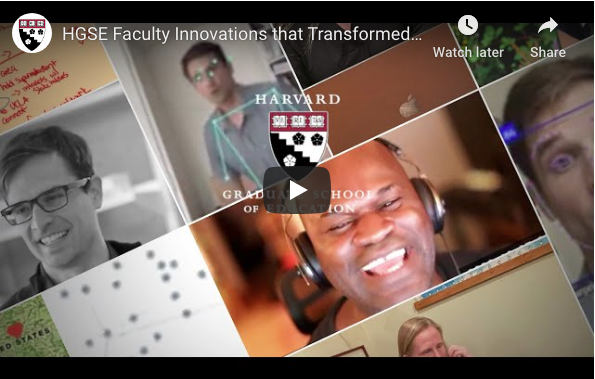Research | Refugee students often live in contexts where the inclusion and peace they build within classrooms is met with exclusion and violence in other spaces of their lives, both inside and outside the school. To address this dissonance, teachers of refugees engage in a constant balancing act: teaching their students both for the world that exists and for a world that they wish existed. In research with teachers and students across contexts of conflict and refuge, we observe specific constructive elements of these approaches to teaching and learning, which we call pedagogies of belonging. These pedagogies of belonging are rooted in predictability, adaptability, and future-building, and guided by relationship-building. In considering how more teachers might learn from them and incorporate them into their practices, I examine how teachers in one school in Lebanon who do use these pedagogies have come to do so.
Read MoreResearch | Like all education, refugee education has a double purpose of formation of individuals and formation of societies. This can be seen as the double purpose of education: helping students live a good life in a world worth living in. This includes a view about how people should live in the world, and the kind of world we should try to establish.
Utilizing Jurgen Habermas’s notion of system and lifeworld and theories of practice, this article explores how teachers in South African, Finnish and Australian schools work towards the double purpose of education. Our focus is on the teachers’ visions of what they are doing, and how these practices are impacted by the larger contexts in which students live. The findings show that teachers understand that refugee students will face barriers in their national systems and aim, through their pedagogical practices, to bridge students’ lifeworlds and educational system demands.
Read MoreThe Power Rainbow is a pedagogical tool and framework to support children in power analysis — the ability to make sense of power and how it shapes our lives and societies. It is a graphic representation of nested systems of power, and concretizes the abstract concept of systemic power through shape, color, and text. The Power Rainbow scaffolds the type of structural thinking necessary to research and take action towards more just futures. The tool was originally developed to support children in Critical Participatory Action Research (CPAR), but it can also be used in critical pedagogy more broadly, such as to support action projects in schools, in workshops with children and caregivers, and in understanding our own lives.
Read MoreExploring Safety, Community and Learning is a K-5 curriculum inspired by Zuhra Faizi's educator resource, Cultivating Trust: How Educators Can Build Relationships with their Afghan Refugee Students. We provide children’s books to spark activities and discussions surrounding key topics raised by Zuhra in this resource. While inspired by Zuhra’s research with Afghan youth, the curriculum is intended to be used with children from any community.
Read MoreThe Missing Colors is a picture book sharing the story of Putra, a child who is feeling grey (and depicted as being grey), while all of the other children around him are bright colors. This story explores belonging, friendship, and taking care of ourselves and one another.
Read MoreResearch | This article examines why and how teachers of refugees enact protection by engaging with local forms of harm facing their refugee students. Through portraits of two classrooms in Jordan, we describe the relationships that form between Jordanian teachers and Syrian students, and the protection practices teachers develop in response. We propose a more comprehensive conceptualization of protection in refugee education that layers socio-political protection on legal and rights-based protection commonly embedded in humanitarian activities.
Read MoreResource | Refugee Stories: Education: Obstacles and Aspirations draws on findings from a doctoral research on young refugees’ educational experiences in England. The study investigated how young refugee people and their families have encountered the education system while considering the implications of living as refugees in England. Young refugee people’s right to education is enshrined in British law; however, the UK has no specific educational policy for them.Invisibilizing practices add to the silence around their experiences and needs. Refugee Stories tells young refugees’ and families’ stories to amplify their voices and shine a light on the social and material conditions they experience.
Read MoreVideo | What would it take to ensure that all refugee young people have access to learning that enables them to feel a sense of belonging? Refugee REACH founder and director Sarah Dryden-Peterson joined Steve Paikin on TVO’s The Agenda to discuss her book “Right Where We Belong: How Refugee Teachers and Students Are Changing the Future of Education,” and to explore this question.
Read MoreResource | Pedagogies of Belonging: Educators Building Welcoming Communities in Settings of Conflict & Migration is a book is about educators, and for educators, and the practices they have developed to create welcoming communities in settings of migration. Each page of the book is a “microportrait” of one educator who we have come to know by spending time in their classroom and school. We learn from educators how they build welcoming communities, how they create space for dissent, for dialogue, for trust, for new identities, for future-building, and how they envision and build newly imagined communities.
Read MoreResource | This new resource is for educators who seek to know about their Afghan students’ experiences to better support them. The resource highlights three central elements that can cultivate trust: Safe classrooms, Community connections, and Quality learning. It ends with suggested questions for educators to facilitate conversations about each of the three elements of trust with students, families, and community leaders.
Read MoreVideo | New animation and research by the Refugee REACH team examines pedagogies of care and belonging in refugee contexts. Research included 8 months of observations in public and private schools in Lebanon and over 100 hours of interviews with Syrian Grade 9 students, their teachers, and families.
Read MoreVideo | New animation and research by the Refugee REACH team examines pedagogies of care and belonging in refugee contexts. Research included 8 months of observations in public and private schools in Lebanon and over 100 hours of interviews with Syrian Grade 9 students, their teachers, and families.
Read MoreVideo | ‘Coffee & Chat’ with Refugee REACH director Sarah Dryden-Peterson focusing on refugee education in Europe and North America, hosted by the SIRIUS Policy Network.
Read MoreInsight | Student leaders and educators in Refugee REACH director Sarah Dryden-Peterson's new module at HGSE, Education in Uncertainty, share how they were able to connect their studies to practice and respond to emerging needs of their local communities and build supports during Covid-19.
Read MoreInsight | HGSE faculty, including Refugee REACH’s own Sarah Dryden-Peterson, share the ways in which technology helped them explore hands-on learning experience, foster community, and continue the conversation outside the classroom during Covid-19.
Read MoreBook Review | Silent Music: A Story of Baghdad captures the story of Ali’s daily childhood adventures—learning to write calligraphy, playing soccer, making his father laugh—and his yearning for peace amidst a time of war.
Read More














